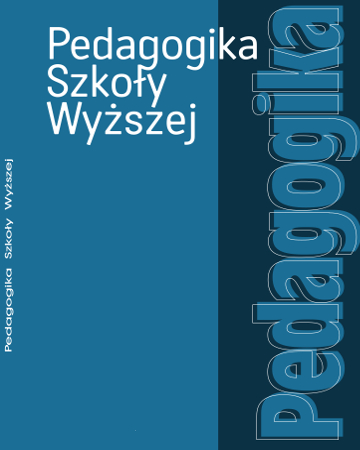
ISSN: 2083-4381
OAI
DOI: 10.18276/psw.2017.1-07



Issue archive /
1/2017
Jakie szanse rozwojowe stwarza uniwersytet „w kryzysie”? Z doświadczeń studentów pedagogiki
(What opportunities for students’development the university in crisis creates? Experiences of pedagogics students)
| Authors: |
Dorota
Pauluk
Uniwersytet Jagielloński |
| Keywords: | crisis university student development |
| Data publikacji całości: | 2018 |
| Page range: | 13 (77-89) |
Abstract
Today’s position is that the university is in a state of crisis. To see if you can complete this diagnosis, I refer
to the student experience in this article. I will reconstruct their perspective on the university and the opportunities
it creates for their development. I recognize the elements that lie in different dimensions of
the academic world, the relationship between them, which in their subjective assessment can lead to both
negative and positive results. The article consists of two parts. In the first part I present the history of the
crisis of the European university. By coming to the present time, I point out that the crisis of this institution
is associated with departing from the model of a research university, a center of culture and a place
of selfless search for the truth. In the second part I refer to the results of my own research. On the basis of
the free speech of the students of the pedagogy of one of the Polish universities I am drawn to the image of
an institution full of dialectical contradictions and ambiguous results that they generate. At the same time,
despite a number of imperfections and shortcomings, I point out that it still has resources that can support
development, inspire action, and address the needs of young people.
Download file
Article file
Bibliography
| 1. | Dąbrowski, K. (1964). O dezintegracji pozytywnej. Szkic teorii rozwoju psychicznego człowieka |
| 2. | poprzez nierównowagę psychiczną, nerwowość, nerwice i psychonerwice. Warszawa: |
| 3. | Państwowy Zakład Wydawnictw Lekarskich. |
| 4. | Geertz, C.J. (2005). Wiedza lokalna, Dalsze eseje z zakresu antropologii interpretatywnej. |
| 5. | Kraków: Wydawnictwo UJ. |
| 6. | Kizwalter, T. (2014). Wielka rewolucja uczelniana. Polityka. Niezbędnik inteligenta, 4, 52–56. |
| 7. | Kowalewicz, M.H. (2010). Idea universitas pomiędzy przeszłością a przyszłością. W: D. Pauluk |
| 8. | (red.), Student na współczesnym uniwersytecie. Ideały i codzienność (s. 13–60). Kraków: |
| 9. | Wydawnictwo UJ. |
| 10. | Mezei, B.M. (2009). Kryzys uniwersytetu. O roli katolickich instytucji kształcenia wyższego. |
| 11. | Ethos, 1–2 (85–86), 29–51. |
| 12. | Ortega y Gasset, J. (1978). Misja uniwersytetu. Znak, 6, 712–731. |
| 13. | Pauluk, D. (2010). Ukryte programy uniwersyteckiej edukacji i ich rezultaty. Doświadczenia |
| 14. | studentów pedagogiki. Kraków: Wydawnictwo UJ. |
| 15. | Scruton, R. (2015). The End of the University. First Things, Pobrane z: https://www.firstthings. |
| 16. | com/article/2015/04/the-end-of-the-university (20.09.2016). |
| 17. | Sosnowska, P. (2012). Idea niemieckiego uniwersytetu. Mit Humboldta? Teraźniejszość – |
| 18. | Człowiek – Edukacja, 4 (60), 127–141. |
| 19. | Sztompka, P. (2014). Uniwersytet współczesny; zderzenie dwóch kultur. Nauka, 1, 7–18. |